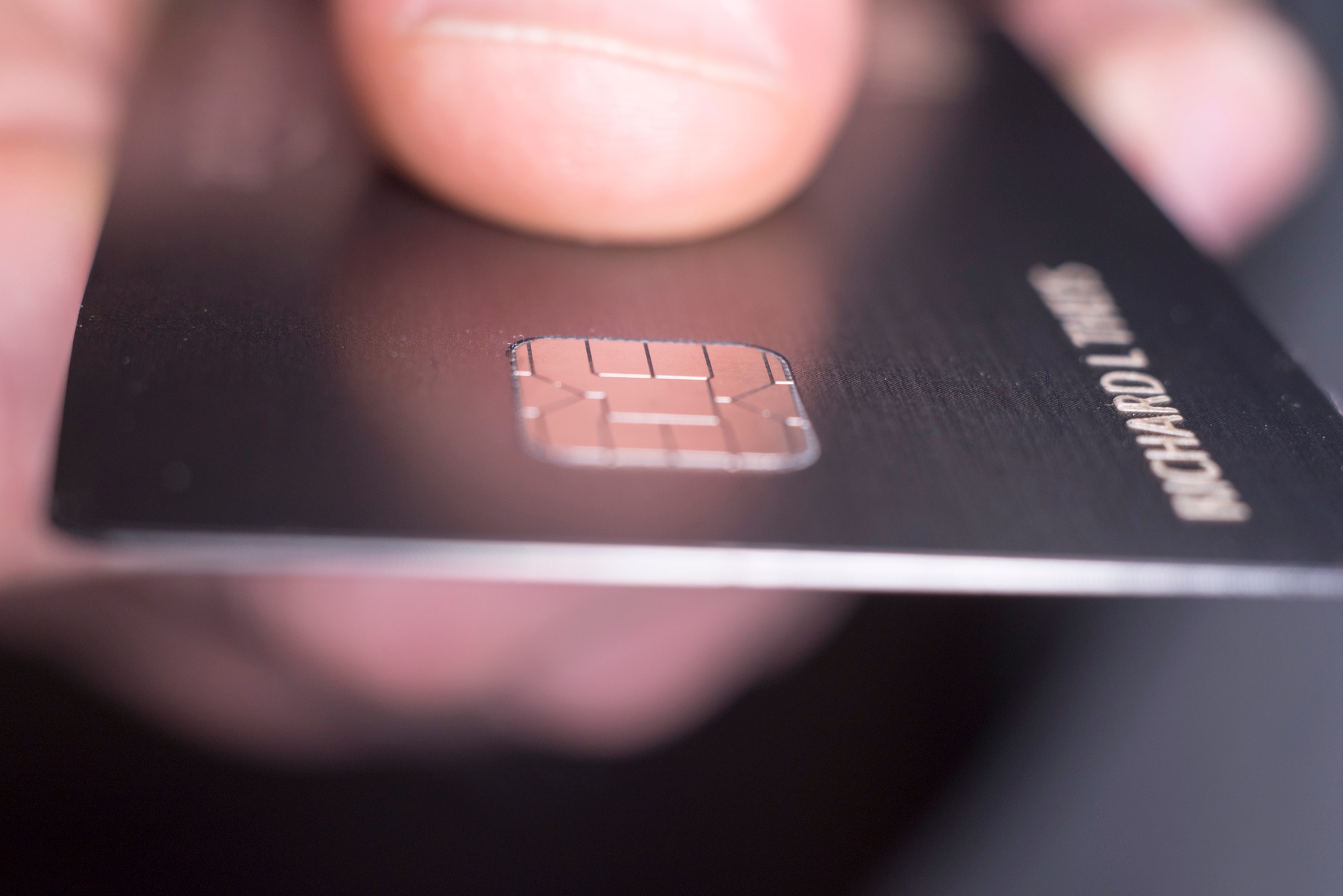Key Takeaways

- Understanding Fraud Types: Online credit card fraud includes phishing scams, data breaches, card-not-present fraud, friendly fraud, and account takeover. Recognizing these types helps in implementing effective defenses.
- Proactive Security Measures: Educate customers on how to identify phishing schemes, enforce strong password policies, and implement two-factor authentication (2FA) to enhance account security.
- Impact on Business: Online credit card fraud causes significant financial losses for consumers and reputational damage for businesses. It’s essential to safeguard sensitive information to maintain trust.
- Secure Online Transactions: Utilize secure payment gateways, ensure customers are aware of safe shopping practices, and regularly monitor transactions to detect potential fraud early.
- Stay Informed: Regular updates on cybersecurity threats and best practices are critical for protecting both your business and your customers from evolving fraud tactics.
In today’s digital age, online credit card fraud is a growing concern that can hit anyone. With the convenience of shopping at your fingertips, the risks often go unnoticed. You might think your information is safe, but cybercriminals are constantly finding new ways to exploit vulnerabilities.
Understanding the tactics they use is crucial to protecting yourself. From phishing scams to data breaches, these threats can lead to significant financial loss and stress. In this article, you’ll discover how to recognize the signs of fraud and take proactive steps to safeguard your financial information. Stay informed and take control of your online security.
Understanding Online Credit Card Fraud

Online credit card fraud poses a significant risk for small businesses in the retail sector. Recognizing its nature and common types can help you safeguard your operations and your customers’ financial information.
Definition of Online Credit Card Fraud
Online credit card fraud involves unauthorized use of a credit card to make purchases or access funds through online transactions. This deception typically stems from stolen credit card information obtained through various malicious tactics. As a small business owner, understanding this definition is crucial for implementing effective security measures.
Common Types of Online Credit Card Fraud
- Phishing Scams: Cybercriminals use deceptive emails or websites to trick customers into providing credit card details. You can mitigate this by educating your customers about recognizing authentic communications from your business.
- Data Breaches: Hackers target small businesses to steal sensitive customer information, including credit card numbers. Regularly updating security software and enforcing strong password policies helps reduce this risk.
- Card-Not-Present Fraud: This type occurs when a customer uses a stolen credit card number for online purchases without the physical card present. Implementing additional verification methods during transactions can help identify fraudulent activities early.
- Friendly Fraud: A customer makes a legitimate purchase but later disputes the charge, claiming fraud. Clear return policies and strong customer service can reduce instances of friendly fraud.
- Account Takeover: Fraudsters gain access to a customer’s account and use stored payment information to make unauthorized purchases. Encouraging your customers to use two-factor authentication can enhance account security.
By understanding these aspects of online credit card fraud, your small business can take proactive steps to protect financial information and foster trust with your customers.
Causes of Online Credit Card Fraud

Understanding the causes of online credit card fraud is essential for safeguarding your small business and protecting customers. Cybercriminals exploit various vulnerabilities to commit fraud, which can lead to significant financial losses.
Skimming and Malicious Code
Cybersecurity vulnerabilities often arise from skimming attacks, such as Magecart, where malicious code infiltrates ecommerce platforms. This code captures payment card details as customers enter them. Physical skimming devices targeting ATMs or point-of-sale systems can also facilitate online fraud, as the stolen information is used for unauthorized transactions.
False Merchant Sites
Fraudsters create fake merchant sites that closely resemble legitimate businesses. These sites often ask for complete credit card information under false pretenses, such as verifying age or offering free products. They don’t typically charge for these services but collect and resell your customers’ credit card information, putting your business and its reputation at risk.
Credit Card Generators
Credit card number generators employ algorithms like Luhn to generate valid card details. Cybercriminals use these numbers to commit fraud easily, making it crucial for you to monitor transactions and ensure proper verification processes are in place.
Prevention Strategies for Online Credit Card Fraud

To safeguard your small business against online credit card fraud, several effective strategies can help enhance security and protect your customers’ sensitive information.
Secure Online Shopping Practices
Implement secure online shopping practices to reduce vulnerabilities. Use secure payment gateways that encrypt data during transactions, ensuring that customers’ credit card details remain confidential. Familiarize yourself with indicators of secure websites, such as URLs starting with “https://” and visible security badges. Educate your customers on how to spot phishing scams, false merchant sites, and other fraudulent activities to promote safe online shopping behavior.
Importance of Strong Passwords
Encourage customers to create strong, unique passwords for their accounts. Emphasize the importance of using a combination of upper- and lower-case letters, numbers, and special characters. Suggest that they avoid easily guessable information, such as birthdays or common words. Implement two-factor authentication (2FA) wherever possible, which adds an additional layer of protection by requiring a code sent to the customer’s phone or email during login. Strong password policies not only protect customer accounts but also contribute to the overall security of your retail operations.
Impact of Online Credit Card Fraud

Online credit card fraud significantly affects both consumers and small businesses. Understanding the consequences is crucial for mitigating risks.
Financial Losses to Consumers
Financial losses due to online credit card fraud are alarming. In 2023, the Federal Trade Commission (FTC) reported 416,582 consumers experienced credit card fraud, including unauthorized use of existing cards and new accounts opened without permission.
Total losses from imposter scams, which encompass credit card fraud, reached $2.7 billion in 2023. Card-not-present fraud, a prevalent form of online credit card fraud, is projected to escalate to $10.16 billion in 2024, increasing from $5.04 billion in 2019. Additionally, a Security.org report indicated that 62 million Americans faced fraudulent charges last year, with unauthorized purchases exceeding $6.2 billion annually. These losses highlight the importance of protecting your financial information.
Reputational Damage to Businesses
Reputational damage is a hidden cost of online credit card fraud for small businesses. When customers fall victim to fraud, they often blame the retailer. This blame can erode trust and lead to reduced sales as customers become reluctant to share payment information.
A single breach can deter future customers from engaging with your business, resulting in long-term financial implications. Maintaining strong security measures strengthens your brand and builds customer confidence. Implementing robust verification processes and educating customers about safe online practices can effectively mitigate these risks and protect your reputation.
Conclusion

Staying vigilant against online credit card fraud is essential for both you and your business. By understanding the tactics used by cybercriminals and implementing robust security measures, you can significantly reduce your risk. Prioritizing education and awareness is key to protecting your financial information and maintaining customer trust.
Regularly monitoring transactions and utilizing secure payment gateways can further enhance your defenses. As online shopping continues to grow, so will the threats. Taking proactive steps now will not only safeguard your operations but also bolster your reputation in the marketplace. Remember that a secure online environment benefits everyone involved.
Frequently Asked Questions

What is online credit card fraud?
Online credit card fraud is the unauthorized use of a credit card involving online transactions. It typically occurs when a cybercriminal gains access to someone’s card information through methods like phishing, data breaches, or skimming.
How can I identify signs of online credit card fraud?
Signs of credit card fraud include unexpected charges on your statement, receiving unfamiliar emails regarding purchases, or alerts about changes to your account. If you notice anything suspicious, act quickly to report it.
What are common tactics used by cybercriminals?
Cybercriminals often use tactics such as phishing emails, where they impersonate legitimate businesses to steal information. Other tactics include data breaches, fake merchant sites, and card-not-present fraud, which exploits online shopping convenience.
How can small businesses protect themselves from credit card fraud?
Small businesses can safeguard against fraud by educating customers, using secure payment gateways, and implementing additional verification methods. Encouraging two-factor authentication and regularly updating security measures are also vital.
What should I do if I suspect credit card fraud?
If you suspect fraud, contact your bank or credit card issuer immediately to report unauthorized transactions. Monitor your account closely and consider placing a fraud alert on your credit report for added protection.
What is the impact of online credit card fraud on consumers?
Online credit card fraud can lead to significant financial losses and stress for consumers. It often results in unauthorized charges, and victims may face hurdles recovering their funds and restoring their financial security.
How does fraud affect small businesses?
Fraud can lead to substantial financial losses and could damage a business’s reputation. When customers fall victim to fraud, it erodes their trust, which can deter future sales and impact a business’s overall success.
What role does two-factor authentication play in online security?
Two-factor authentication adds an extra layer of security by requiring users to verify their identity through a second method, such as a text message or app notification. This makes it harder for cybercriminals to gain unauthorized access to accounts.
Why is it important to educate customers about fraud?
Educating customers empowers them to recognize and avoid potential scams, reducing the likelihood of them falling victim to fraud. This not only protects their financial information but also helps maintain trust in your business.
What is card-not-present fraud?
Card-not-present fraud occurs when a credit card is used for online transactions without the physical card being present. This type of fraud exploits the convenience of e-commerce and is becoming increasingly common.
Image Via Envato



